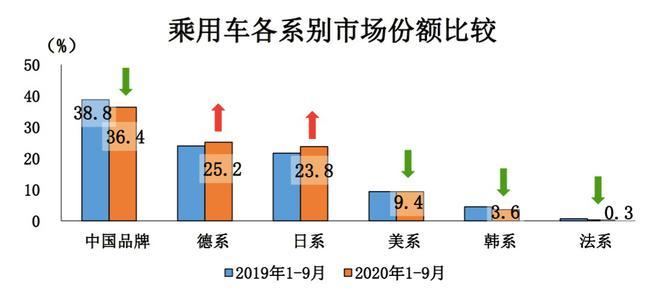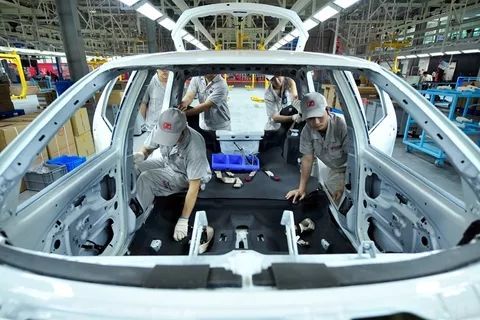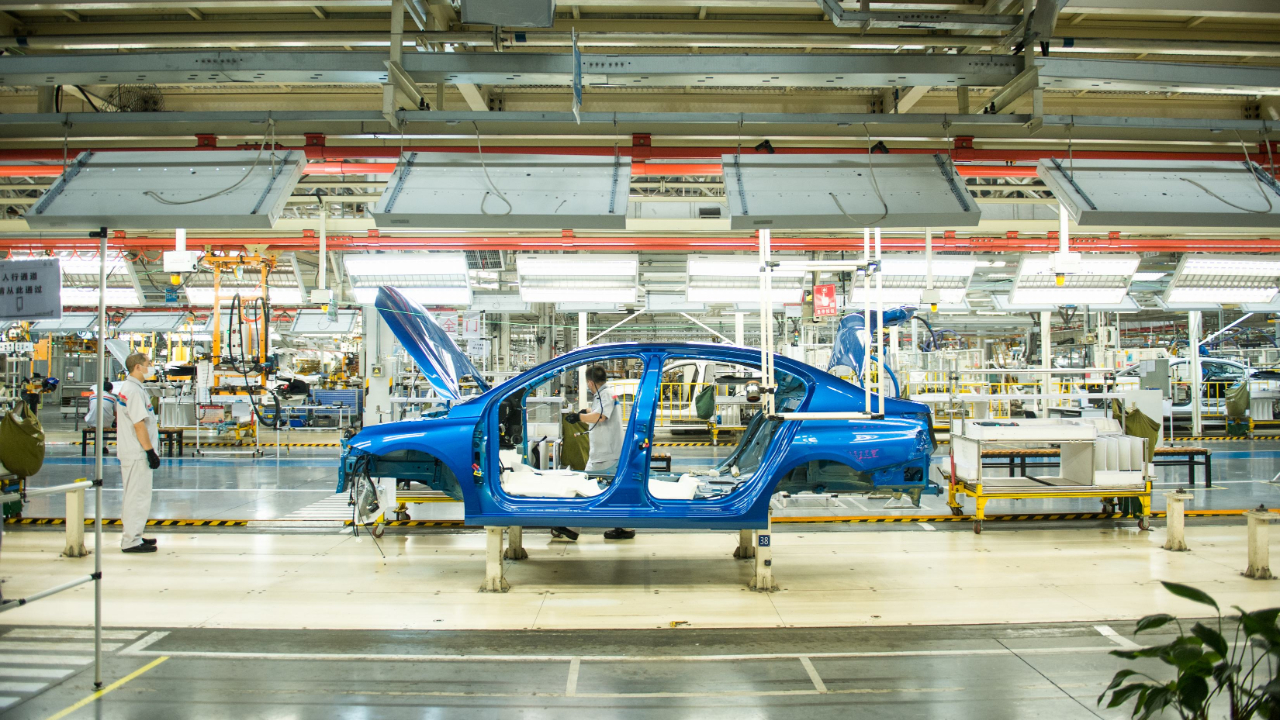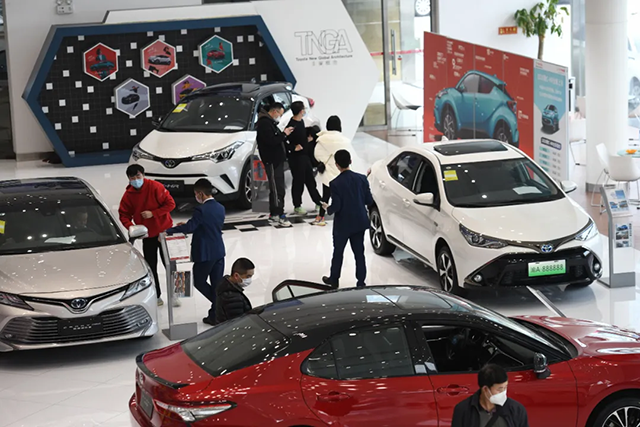In addition to Weibo, there is also WeChat
Please pay attention

WeChat public account
AutoBeta


2024-11-24 Update From: AutoBeta autobeta NAV: AutoBeta > News >
Share
AutoBeta(AutoBeta.net)10/19 Report--
In 2020, the trend of China's automobile market is further divided, and the Matthew effect phenomenon of "the strong is stronger and the weak is weaker" is highlighted. The epidemic and the depressed performance of the car market in the first half of the year further threatened the survival status of weak brands. From the perspective of the industry pattern, the concentration of the market is increasing.
A few days ago, the China Association of Automobile Manufacturers released the latest issue of "Market share of different departments of passenger cars", and the trend of different brands in China's passenger car market from January to September was also officially confirmed. From the comparison of the market share of major cars, we can see that the sales of passenger cars of Chinese brands are still in the first place, but the market share continues to decline, French brands are almost in decline, while German and Japanese brands are rising rapidly.

According to the data, passenger car sales in China in September were 2.088 million, up 8% from the same period last year. From January to September, cumulative sales were 13.376 million, down 12.4% from a year earlier. Even if monthly sales return to positive growth in the second half of the year, there is still a double-digit decline for the whole year, which poses a greater challenge to the market performance of major brands.
Independent brand decline
In terms of self-branded passenger cars, a total of 784000 self-branded passenger cars were sold in September, up 19.8% from the previous month and 7.5% over the same period last year, accounting for 37.6% of the total passenger car sales. 4.873 million passenger cars were sold from January to September, down 17.7% from the same period last year, accounting for 36.4% of the total passenger car sales, and the share decreased by 2.4% over the same period last year.
In fact, the decline in the share of independent-brand passenger cars is mainly due to the fact that third-and fourth-tier brands have almost withdrawn from the market competition.
Leading independent brands such as Geely Automobile, Great Wall, Changan, SAIC and Guangzhou Auto have all achieved positive monthly sales growth, while the annual sales decline has further narrowed, with Changan Automobile achieving a substantial growth of 21% in the previous September. These brands have also developed into sales support for independent brands. While the backward brands are almost "depressed", Zhongtai Automobile, Lifan Automobile, BAIC Magic Speed, Cheetah Motor, Changhe Automobile and so on are struggling on the brink of elimination.

China has more than 100 independent automobile enterprises. in the process of moving from the incremental era to high-quality development, some automobile enterprises have been marginalized by the market and entered a moment of life and death. at the same time, it has accelerated the merger and reorganization of China's automobile industry. and the epidemic accelerated the knockout of independent car companies. Zhu Huarong of Changan Automobile predicted five years ago that 50 per cent of Chinese car companies would be eliminated, and the changes that have taken place in China's car market over the past two years are confirming his prediction. Zhu Huarong recently stressed: "this is not a judgment, but a law." We don't need so many brands in the world. "
French brands are "depressed"
On October 19, DPCA issued an open letter saying that DPCA is ready to burn its bridges and fight a war. From extending the joint venture period to cash flow injection and brand promotion support, to strengthening the authorization of the management team and the future-oriented capital increase plan, a series of substantive support from both shareholders are on the ground.
Today, legal brands in China may have reached the point of "situation endangering". According to the report of the China Automobile Association, the market share of French brands in China from January to September was only 0.3%, down 0.4% from 0.7% in the same period last year. For legal brands, it is undoubtedly a heavy blow.

At the end of 2019, Changan PSA (DS brand) announced its dissolution. In April 2020, Dongfeng Renault Joint Venture stopped production and delisted. Now all the eyes of French brands are on the Dragon Motor Company, which was founded in 1992-Dongfeng Peugeot and Dongfeng Citroen.
DPCA sold 2911 vehicles in August, down 57% from a year earlier, according to official figures from Dongfeng Motor Group, a year-on-year decline of 63.4% to 29693% from January to August. After in-depth adjustment, under the leadership of the new general manager Chen Bin, whether the Dragon can get out of the predicament remains to be tested by the market.
The growth of Germany and Japan against the trend
The further improvement of the market share of German and Japanese brands also reflects the strong position of the mainstream brands.
German brands gained a cumulative market share of 25.2% in the first nine months, mainly due to the continued growth of luxury brands. Among them, FAW-Volkswagen accumulated sales of 1.4336 million vehicles from January to September, down 0.4% from the same period last year; SAIC-Volkswagen accumulated sales of 1.106 million vehicles, down 19.3% from the same period last year. Both Beijing Mercedes-Benz and brilliance BMW ranked among the top 15 passenger car companies. Beijing Mercedes-Benz sold 458000 vehicles from January to September, up 7.7% from the same period last year, while brilliance BMW sold 438000 vehicles, up 11.5% from the same period last year.

The market share of Japanese brands reached 23.8%, and the market performance of Toyota, Honda and Nissan remained strong. From January to September, Dongfeng Nissan sales totaled 808000 vehicles, down 10.8% from the same period last year. Toyota's two joint ventures both achieved growth. FAW Toyota sold 548000 vehicles in the previous September, up 2.9% from a year earlier, while Guangzhou Auto Toyota increased 11.6% to 539000 vehicles. Guangzhou Auto Honda and Dongfeng Honda both had about 530000 vehicles, down slightly from the same period last year.
From the analysis of the market share of each department, we can also predict the market trend of each brand. In the market environment of stock competition, brand differentiation is more obvious, and German and Japanese brands still have a continuous upward momentum. From the perspective of the industry pattern, the concentration of the market is increasing, while weak brands are facing elimination.
Welcome to subscribe to the WeChat public account "Automotive Industry Focus" to get the first-hand insider information on the automotive industry and talk about things in the automotive circle. Welcome to break the news! WeChat ID autoWechat
Views: 0
*The comments in the above article only represent the author's personal views and do not represent the views and positions of this website. If you have more insights, please feel free to contribute and share.











© 2024 AutoBeta.Net Tiger Media Company. All rights reserved.